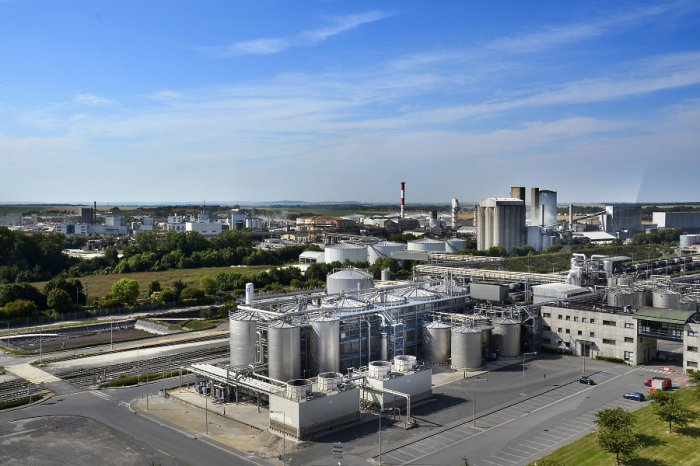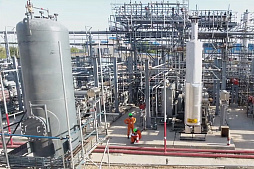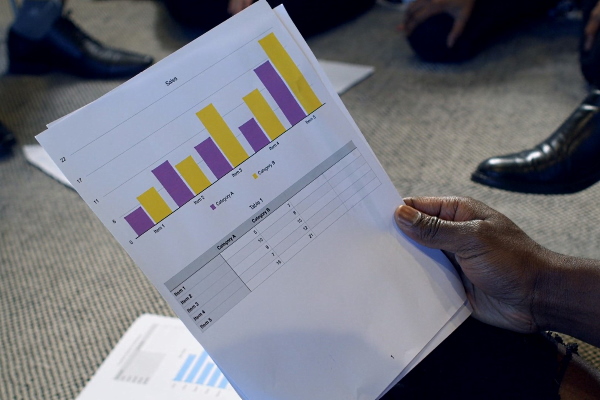To consider an application for financing, fill out the form and send it to us by e-mail along with the project brief, or contact our experts
In a highly competitive environment, it is important for businesses to effectively manage investments, choosing the most suitable projects and rationally using available sources of financing.
Link Bridge Financial LTDA LBFL brings together financial professionals with rich international experience to help its clients realize major projects around the world.
In particular, we help finance projects for power plants, factories, mines, seaports, infrastructure, hotels and much more.
Our team cooperates with companies from dozens of countries around the world, including the US, Spain, UK, Germany, Mexico, Brazil, Chile, Saudi Arabia, Vietnam and others.
Investment project management in the real economy
Investment projects are managed at several levels, from the state level to individual companies.In general, the management of investment activity in the real economy includes the distribution of financial and other resources across sectors and enterprises in accordance with the current needs of the economy and the impact of these investments on business, government and society. Government agencies are also seeking to raise funds from both domestic private investors and foreign investors.
Creating a favorable investment climate is one of the key objectives of investment management at the macroeconomic level.
Such activities are carried out by state bodies at the legislative level, including through tax incentives, solving problems of double taxation, clear rules for the export of capital outside the country and other measures.
If we talk about companies, the management of investment projects in the real economy can be considered both from the perspective of an investor and from the perspective of potential consumers. For an investor, the process of investment management consists in choosing the most suitable investment object, assessing the state of this object, determining the possibility of implementing the project, calculating the expected profitability of the investment project and assessing the risks of its failure.
For potential recipients of investments, project management consists in developing documentation, attracting resources on favorable terms, assessing the real possibilities of the investor, as well as developing the most appropriate action plan to achieve investment goals (financing, engineering, operation, etc.)
It should be noted that special investment management structures are created only in large companies where the investment process is constantly going on.
For this reason, most companies seek professional services from consulting firms, including investment engineering, financial modeling, and others.
Principles of investment project management
Investment projects for the most part are complex multi-stage activities with a large number of internal and external relations, as well as with a very significant amount of resources involved, including financial and labor resources.The risk of a project increases with its scale, especially since some of the decisions made are based on incomplete information. For this reason, the key to success is the professional management of investment processes at all stages of planning, financing and project implementation.
General principles for the proper management of investment projects include the following:
• A clear setting of goals and an action plan to achieve them in the shortest possible time with minimal use of investment resources.
• A single, clearly justified management system that will operate throughout the entire life cycle of an investment project.
• Maintaining compliance of the applied tools for managing investment processes with the development strategy of the investment object.
• Continuous professional monitoring of management decisions and control of their results at all stages of the investment project.
• Active involvement of independent experts to evaluate management decisions taking into account social, environmental and other factors.

According to modern ideas, any investment project should be viewed as an integral system consisting of various elements united by the goal of an increase in capital.
Financial modeling of cash flows is carried out throughout the life cycle.
The resulting cash flows should be ultimately positive, with possible minor changes in certain periods of the project life cycle.
An important place in the management of investment projects belongs to the time factor, namely the discounting of cash flows, taking into account external factors and internal conditions of a particular company (project).
It is also important to take into account the interests of all participants in the investment process, including contractors, investors, lenders, consumers, etc.
All of the above emphasizes the need for a multifaceted and multi-stage evaluation of each investment project and its results. A thorough analysis of investment, operational, market and other risks in the management of the project life cycle becomes the key to achieving the set goals and respecting the interests of the participants.
Stages of the investment project
An investment project in terms of management should be divided into stages, each of which has unique features and requirements.The stages of the investment process include:
1. Project initiation.
2. Planning and creation of project documentation.
3. Stage of implementation of the investment project.
4. Facility operation.
5. Closing.
Sometimes financial experts combine the first two stages, calling them the "pre-investment stage".
Within each stage, there can be multiple goals. For example, the stage of implementation of an investment project involves the construction of a facility, infrastructure development, purchase, delivery, installation and commissioning of equipment.
Each of these sub-stages requires an individual approach while maintaining the schedule for putting the facility into operation.
The following is a summary of the main steps:
• The planning stage includes the development of a strategy for the implementation of investments, and the algorithm for achieving each goal.
• The operation phase of the investment facility consists mainly of production management plans, maintenance plans and plans for other ongoing tasks.
• The project closure phase consists of the development of a site liquidation procedure, which requires a dedicated management structure.
In fact, the investment project management process is the interaction of the investment object and a specially created team.
Having designated an investment object at the stage of project initiation, companies create a management team with a specially adapted structure for this object.
Professional investment project management team
In practice, large companies often have to simultaneously implement several investment projects.In these cases, coordination is carried out by a higher level management team.
Such a team is created as an investment management board, which includes top management of the corporation and heads of specialized departments related to the implementation of investment processes, such as heads of marketing departments, engineering departments, sales departments, etc.
This team can be led by the CEO of the company or, for example, the director of development.
The board's task is to approve the company's development strategy, select suitable investment projects, prioritize their implementation, allocate resources between projects, and monitor them.
So, the development of an investment project is entrusted to a specially created group of experts headed by a curator. The group is responsible and coordinates all stages of the development and implementation of the project.
The investment project management structure includes:
• Investment management board.
• Project teams and their curators.
• Experts in the field of investment engineering.
• Auxiliary services (finance, construction, etc).
• Marketing and sales experts.
In this scheme, investment engineering experts are responsible for the development of project analytical documentation, feasibility studies, project selection criteria and business plans at each investment stage.

In other words, this service provides the project team with the most important tools for the development of the project and analytical information for its evaluation.
On the other hand, auxiliary services and departments perform a wide range of tasks:
• Preparation of financial and other resources for the investment project.
• Selection of an investor and the search for borrowed resources through banks and IFIs.
• Evaluation of the accumulated resources and their comparison with the project needs.
• Conducting tenders among suppliers and contractors.
• Search for equipment and negotiating with manufacturers.
• Construction management and monitoring.
• Launching the facility into operation.
The project team develops an algorithm for the implementation of the project, conducts the necessary analyzes, obtains permission from the authorities for the construction (licensing), controls the construction and commissioning of the facility, evaluates the production and marketing reports.
Failure to achieve project targets may indicate that the project team is making poor decisions or operating inefficiently.
Analysts at the investment management board should identify the reasons for the failure and make recommendations to management on correcting the situation with particular project. This is the task of the so-called post-investment management department. Based on the conducted analytical studies, this department provides top management with recommendations for improving the investment process, including minimizing the risks of investment projects.
It should be noted that a large number of models and tools have been developed for managing investment projects.
Considering the complexity and exceptional importance of this issue, a growing number of companies prefer to use the services of external consultants specializing in the development of investment project management systems.
This can be explained by the fact that many enterprises and organizations do not have the opportunity to create investment management structures due to the lack of resources and specialists in this field.
It is often cheaper to use the services of a specialized company that will develop the entire investment plan, assess the feasibility of the project and help with the search for investors, lenders, and equipment suppliers.
The customer will only have to implement the project and operate it.
If you are interested in professional investment project management services, please contact an LBFL representative.
We will be happy to answer any of your questions and provide comprehensive support at any stage of the project.




























